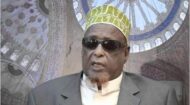In some ways, the decision by President Mahmoud Abbas of the Palestinian Authority to force a losing vote on Palestinian statehood at the United Nations Security Council on Tuesday and then sign papers to join the International Criminal Court on Wednesday was not surprising.
At nearly 80, he has to be tired and deeply frustrated with the failure of years of peace negotiations with Israel to achieve the Palestinian dream of an independent state. He has seen his popularity and credibility plummet as he competed for the support of his people with Hamas, the militant group that would rather lob missiles at Israel than recognize it.
“They have to take some meaningful steps to recover anything of their really shredded credibility,” Nadia Hijab, executive director of Al-Shabaka: The Palestinian Policy Network, said of Mr. Abbas’s team in an interview with The Times.
And, in truth, prospects for a two-state solution grow dimmer by the day, with right-wing Israeli politicians opposing a Palestinian state and the Israeli government, led by Prime Minister Benjamin Netanyahu, steadily expanding settlements, making the creation of a viable Palestinian state harder.
But Mr. Abbas’s actions will almost certainly make the situation worse, setting back the cause of statehood even farther. By taking this tack before the Israeli elections, which are set for March 17, he has given Israeli hard-liners new ammunition to attack the Palestinians and reject new peace talks. And he may have set in motion the collapse of the Palestinians’ self-governing authority.
Mr. Abbas began this week by insisting that the Security Council approve a resolution to set a deadline for establishing a Palestinian state, including the phased withdrawal of Israeli forces from the West Bank by the end of 2017. After heavy lobbying by the United States and Israel, the resolution received only eight of the nine votes needed to pass in the 15-member council. The fact is, the United States, which voted against the measure, supports a Palestinian state. And France, which broke with the Americans and voted in favor, acknowledged reservations about some of the details.
Following this defeat, Mr. Abbas moved swiftly on Wednesday to take an even more provocative step in joining the International Criminal Court, through which the Palestinians could bring charges against Israeli officials for cases against their settlement activities and military operations.
The United States Congress had long threatened to impose sanctions against the Palestinian Authority, including the loss of about $400 million in annual aid, if it joined the court. Israel could withhold tens of millions of dollars in tax remittances, as it has before, and could move more aggressively to build settlements in sensitive areas. Mr. Netanyahu also said the Palestinians may now be subject to prosecution over support for Hamas.
How the European Union, another major donor to the Palestinians, might react is unclear. Even though the United States and Israel may want to punish the Palestinian Authority, hasty retaliation could trigger the authority’s collapse and impose major new burdens on Israel.
Under agreements with the court signed by Mr. Abbas, the Palestinians cannot file a complaint against Israel for up to 90 days. They would be wise to delay any action until at least after the Israeli election, when voters will have a chance to decide the country’s leadership. It’s possible that the crisis Mr. Abbas has provoked could bring about fresh consideration of the compromises that both sides need to make to allow their peoples to live in peace. But given the history, it’s hard to be optimistic.

 All Posts
All Posts










